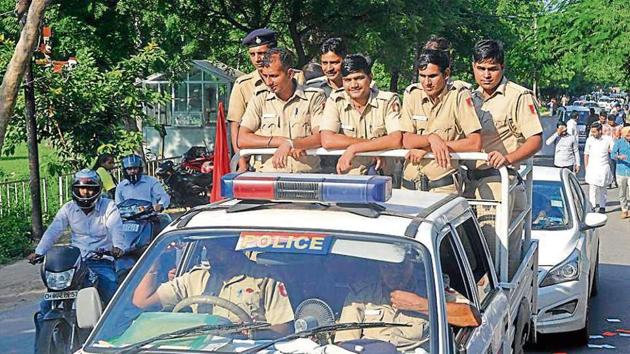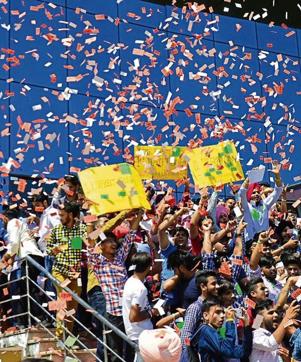Panjab University polls-2017: Low-key campaigning comes to an end
Held under shadow of Panchkula violence, campaigning fails to pick up steam; low turnout feared on D-Day
The student councils of the varsity and its affiliated colleges in the city go to the polls on Thursday. There are 15,690 voters on the campus and 8,000 in colleges.

The annual extravaganza normally sees campaigning peaking in August-end, but this year the tricity was under virtual lockdown with Dera Sacha Sauda followers converging on Panchkula and later resorting to violence as their sect head Gurmeet Ram Rahim Singh was convicted in two rape cases on August 25.

With the varsity closing down, student outfits got only a week for campaigning. Many students hailing from other parts of the region, in fact, left for home ahead of the verdict. Even after PU opened, the usual pomp and show, marked by swanky cars and rallies, was missing.
Even on Tuesday, rallies taken out by the Students for Society (SFS) and National Students Union of India (NSUI) had only a few hundred students participating in it. The Students Organisation of India (SOI), which had won the presidential elections in 2015 and stood second last year, had to cancel the rally as it could not register enough footfall.
Police crackdown
Among other factors that contributed to the elections remaining a dull affair this year was the police crackdown on outsiders residing in hostels and strict checking at all entry points to the varsity. Police arrested 22 outsiders, including a gangster convicted of murder, who were trying to enter the campus on the day of nominations. Eleven students residing illegally in hostels were also arrested.
Earlier, Vijay Kumar, an All India Students Association (AISA) leader, was arrested and sent to Burail jail and 23 others were also detained from the Post Graduate Government College, Sector 11.
Throughout the campaign period, there was heavy presence of police on the campuses. What added to the fears of a crackdown by the authorities was the presence of paramilitary forces. They were seen manning the university gates and carrying out a flag march outside the DAV College, Sector 10.
One of the main reasons the authorities were extra cautious this time has been the emergence of the SFS as a major player on the campus after the fee hike protests of April 2017, which saw unprecedented violence and arrests of nearly 60 activists
No political funding
Political interference, too, was missing this time. Every year, major parties pump in money to attract voters to their student outfits.
Freshers’ parties, movie shows, trips to hill stations and distribution of phones and food vouchers take place — in violation of Lyngdoh Commission recommendations — around this time of the election season.
This year, however, all these events were missing as mainstream political parties, including Congress, Shiromani Akali Dal and Bharatiya Janata Party, deprived the outfits of funds. Even political leaders didn’t visit the campus.
Student leaders said they did not get the kind of political funding they got on other occasions, which led them to managing the campaign from their own resources.





